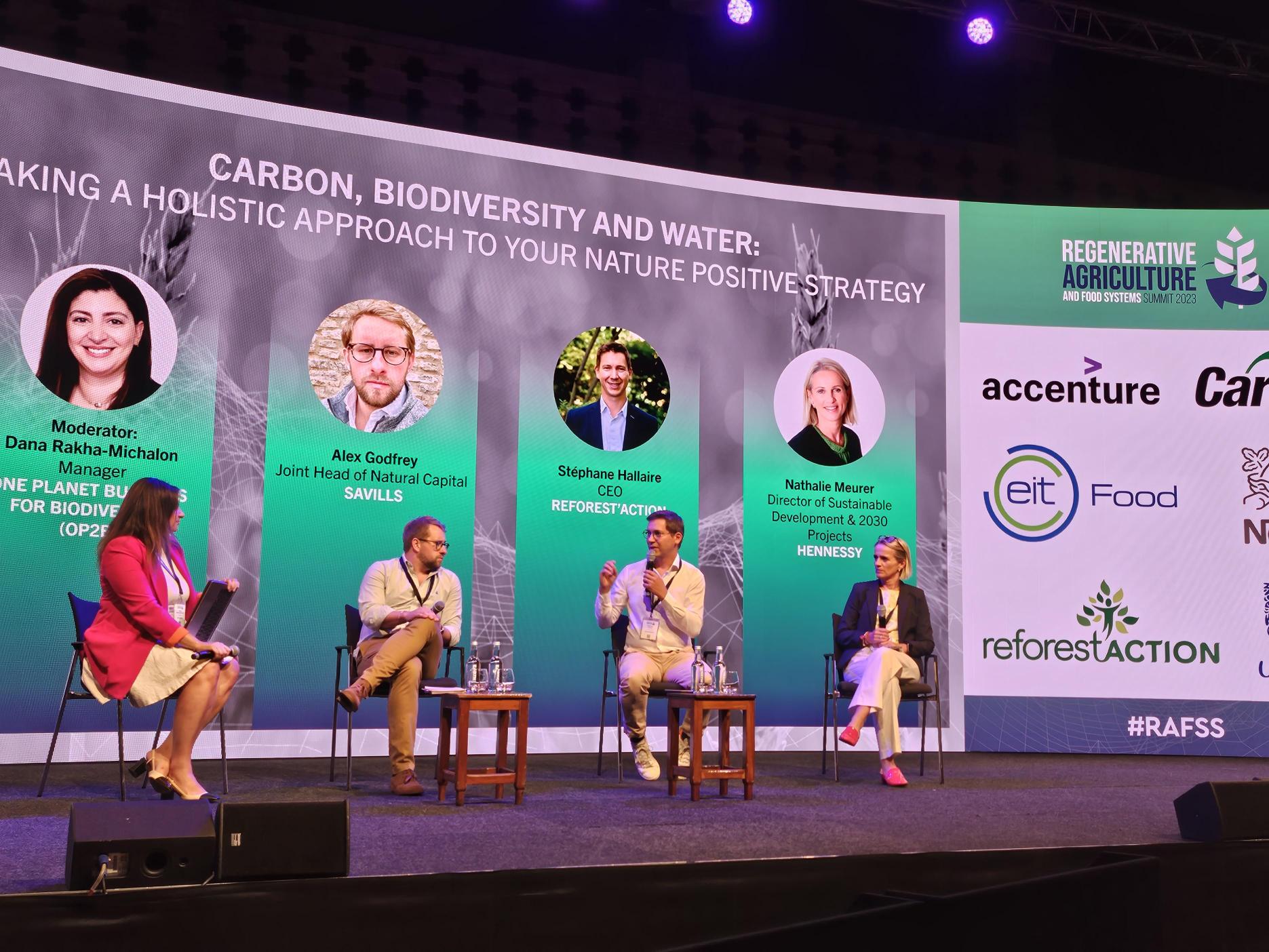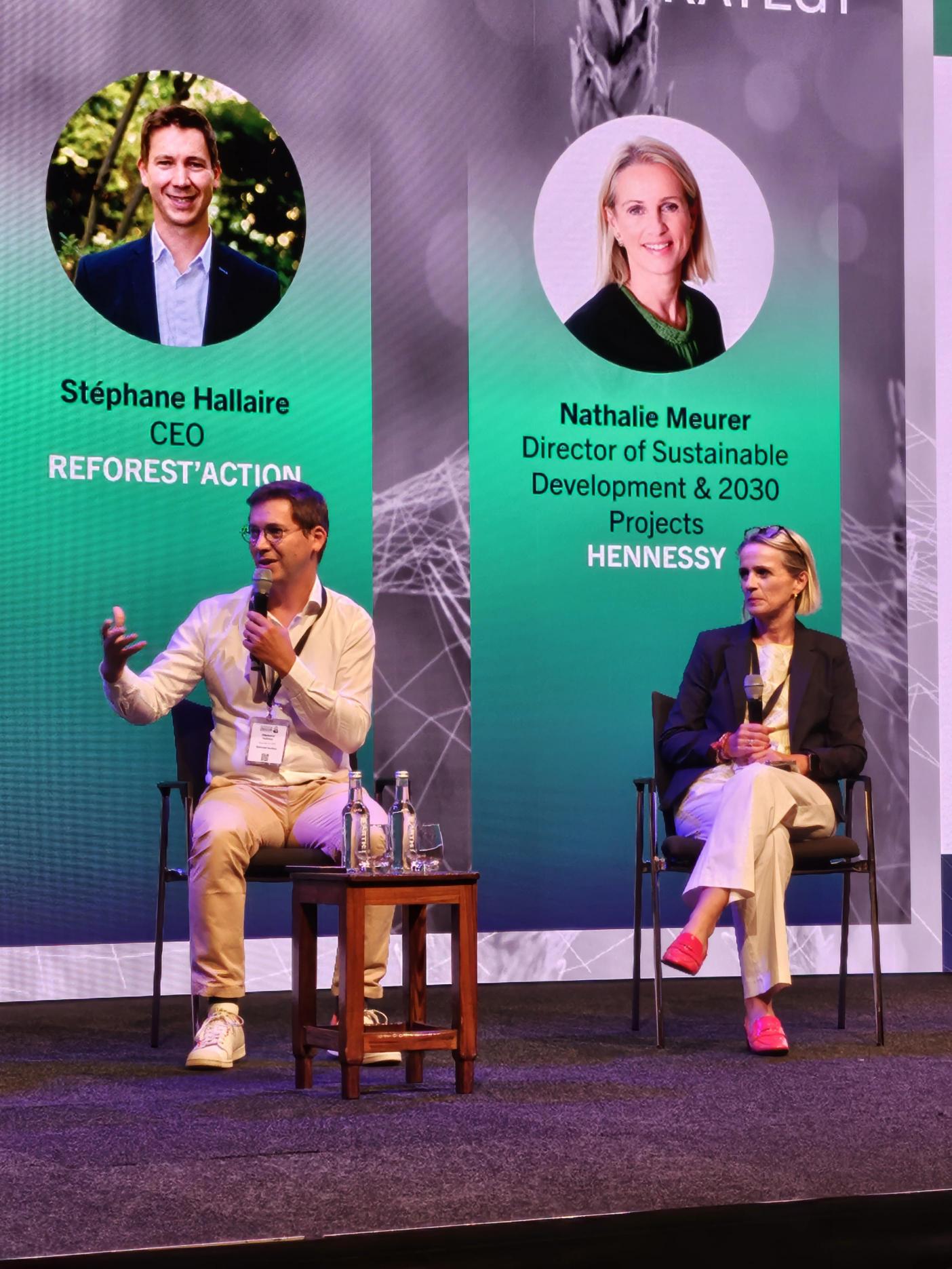On September 5, 2023, Reforest'Action spoke at the Regenerative Agriculture and Food Systems Summit in Amsterdam, bringing together over 200 high-level decision-makers from the food supply chain sector. Stéphane Hallaire (Founder and CEO of Reforest'Action) took part in a round-table discussion moderated by Dana Rakha-Michalon (One Planet Business for Biodiversity (OP2B), World Business Council for Sustainable Development). He debated with Nathalie Meurer (Director of Sustainable Development and 2030 Projects, Maison Hennessy, LVMH) and Alex Godfrey (Head of Natural Capital, Savills). The panel discussed the benefits of adopting a holistic approach as part of a "Nature Positive" corporate strategy.

Adopting a Holistic Approach
During the round-table discussion, Stéphane Hallaire stressed the need for companies to adopt a holistic approach when implementing regenerative agriculture projects. There is a strong temptation to consider only the carbon impact of projects in addition to agricultural production. But this is only a partial response to the environmental challenges we face. Indeed, with production declining over time due to declining soil quality and water scarcity, we need to act quickly and on a large scale on levers other than climate. Considering agriculture in silos can no longer be the right approach. We need to consider the complexity of ecosystems. As such, the approach we promote at Reforest'Action starts with defining objectives and constraints regarding production, climate, biodiversity, soil, water, and social acceptance. We build tailor-made projects by adopting the best practices of regenerative agriculture - cover crops, crop rotation, and agroforestry - before assessing their impact over time. This approach is more complex than conventional agriculture: it requires more skills and some investment. However, regenerative agriculture is a winning bet. In addition to generating carbon credits, it ensures greater crop resilience, for example, by limiting water requirements or protecting crops from strong winds. The purchase of inputs is also reduced, given the positive effects of biomass.
Measuring the impact
To encourage this kind of agricultural transition, companies at the end of the agricultural value chain often must provide financing, as farmers rarely have the means to pay for the necessary investments. To do so, they need to know the benefits of adopting regenerative farming practices, hence the importance of defining precise objectives and measuring their attainment over time. Reforest'Action's ambition regarding the climate is to ensure that the farm captures more CO2 than it emits. For biodiversity, we consider a reference ecosystem without human intervention and ensure the project is close to it. We are also developing technologies to measure the carbon, biodiversity, soil/water, and social impacts of projects. Some measurement tools, such as soil sampling, are easy for farmers to use. Others, such as satellite and regional scientific data, enable remote analysis.

Agriculture is responsible for 23% of greenhouse gas emissions worldwide. It also has a significant impact on biodiversity and water, for example. In this respect, the round table was an opportunity for Stéphane Hallaire to argue in favor of a holistic approach, as it would be too risky to focus solely on reducing carbon emissions in the context of agricultural production. Reforest'Action's holistic approach aims to regenerate terrestrial ecosystems on a large scale to meet global challenges, drawing on field experience, local communities, science, and technology.